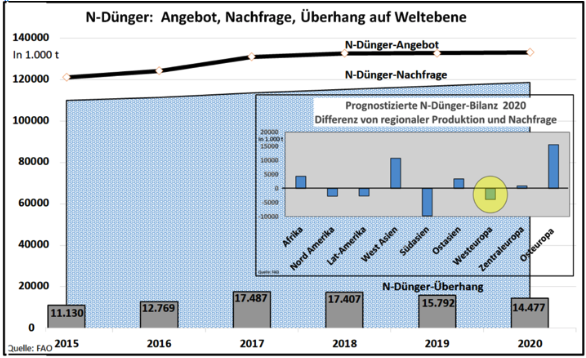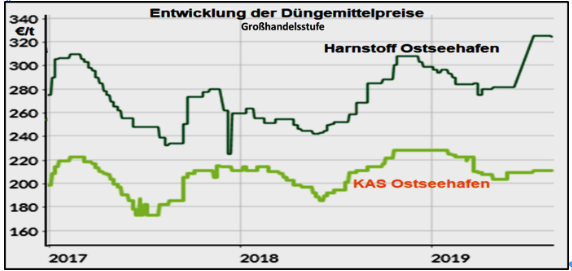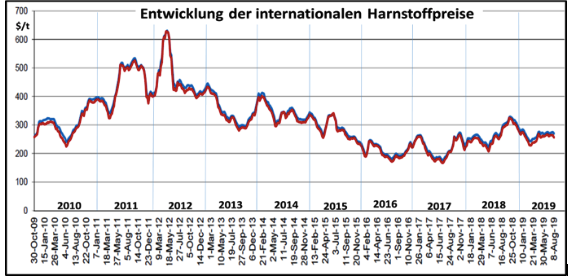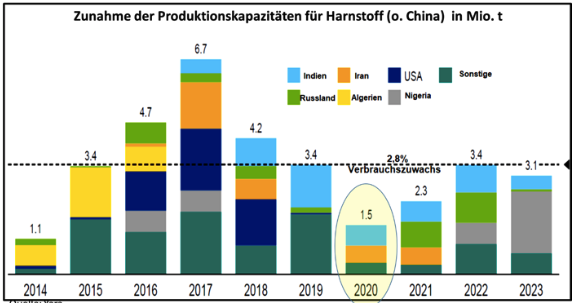The years 2017 and 2018 were characterized by a well-supplied N-fertilizer market with high reserves. N fertilizers were offered cheaply during these years. This time seems to be over for now. Already in 2019, the Food and Agriculture Organization of the United Nations (FAO) has identified a clear limitation of the good supply situation. For the year 2020, the FAO estimates that N-fertilizer supply on a global scale is only 0.25% higher than in the two good years before. By contrast, demand growth is estimated to be 2.1% higher than the previous two-year average. The deficit is disputed from the overlay stocks. As a result, stocks on the world level are reduced. The price-influencing supply number falls from an above-average 15% to just barely average 12.2% final consumption. The ratio of regional N fertilizer production to consumption varies across the continents. In West and East Asia, Eastern Europe and Africa, the FAO estimates that reduced exportable surpluses should exist, with the exception of East Asia, where volumes are rising.By contrast, a deficit is predicted for North and Latin America, South Asia and Western Europe that requires imports. For Western Europe, however, the usual shortfalls should not rise. The political tensions between the USA, China and Iran are contributing to considerable uncertainty in global exports and imports as well as price discovery. Fluctuations in exchange rates do the rest. In Germany, the new fertilizer laws initially caused uncertainty in mixed fertilizers. Admixtures and additives cause higher costs, so that in some cases fertilizer prices have increased significantly. The future price development is therefore hardly calculable. The usual orientation towards the development of the grain price level or the energy costs are strongly disturbed by the other influencing factors. In the tendency one can assume that under the new German fertilizer guidelines the demand turns out rather slowed down. Extreme price fluctuations are therefore unlikely to be expected.
 |
 |
 |
 |

